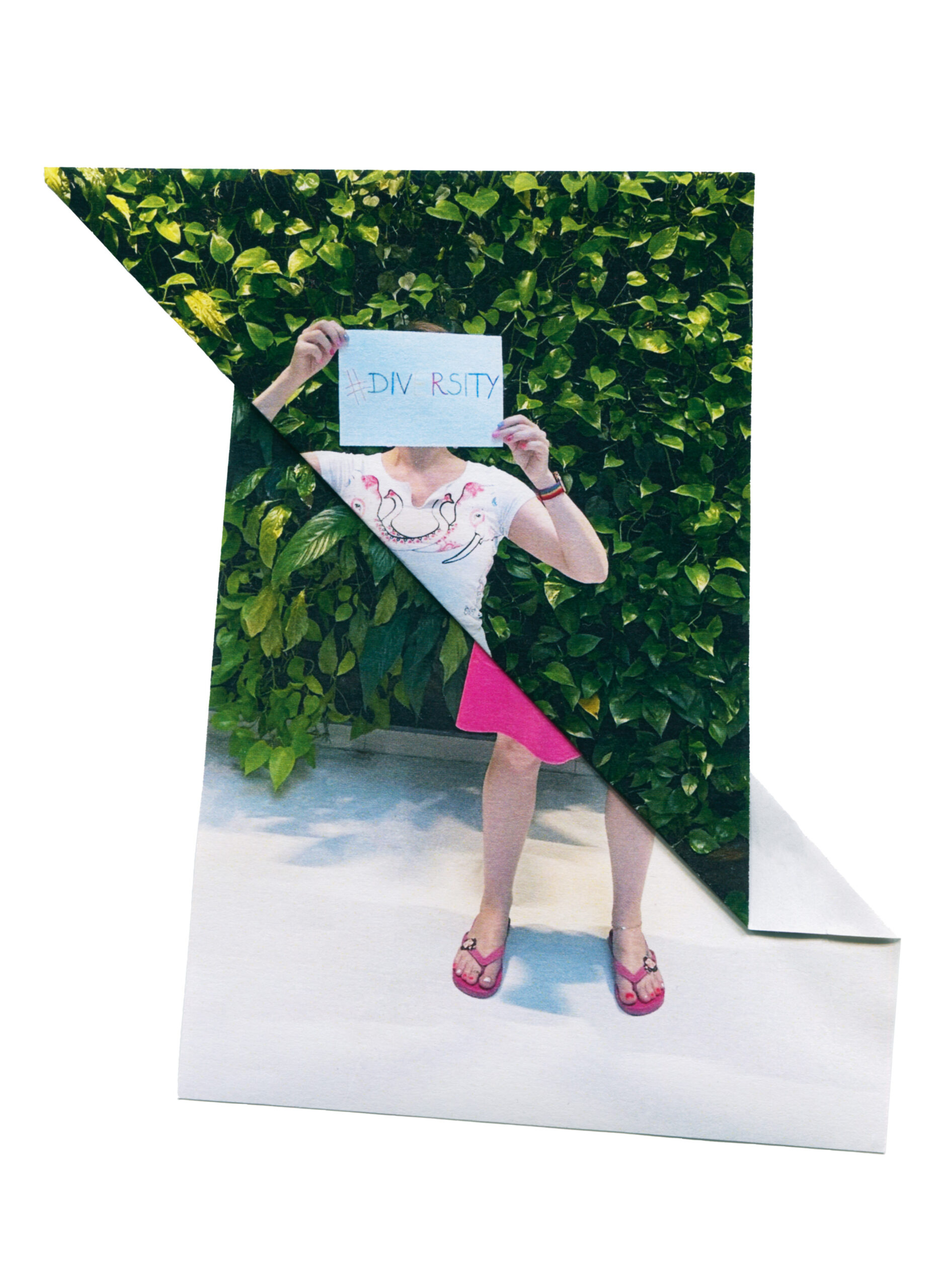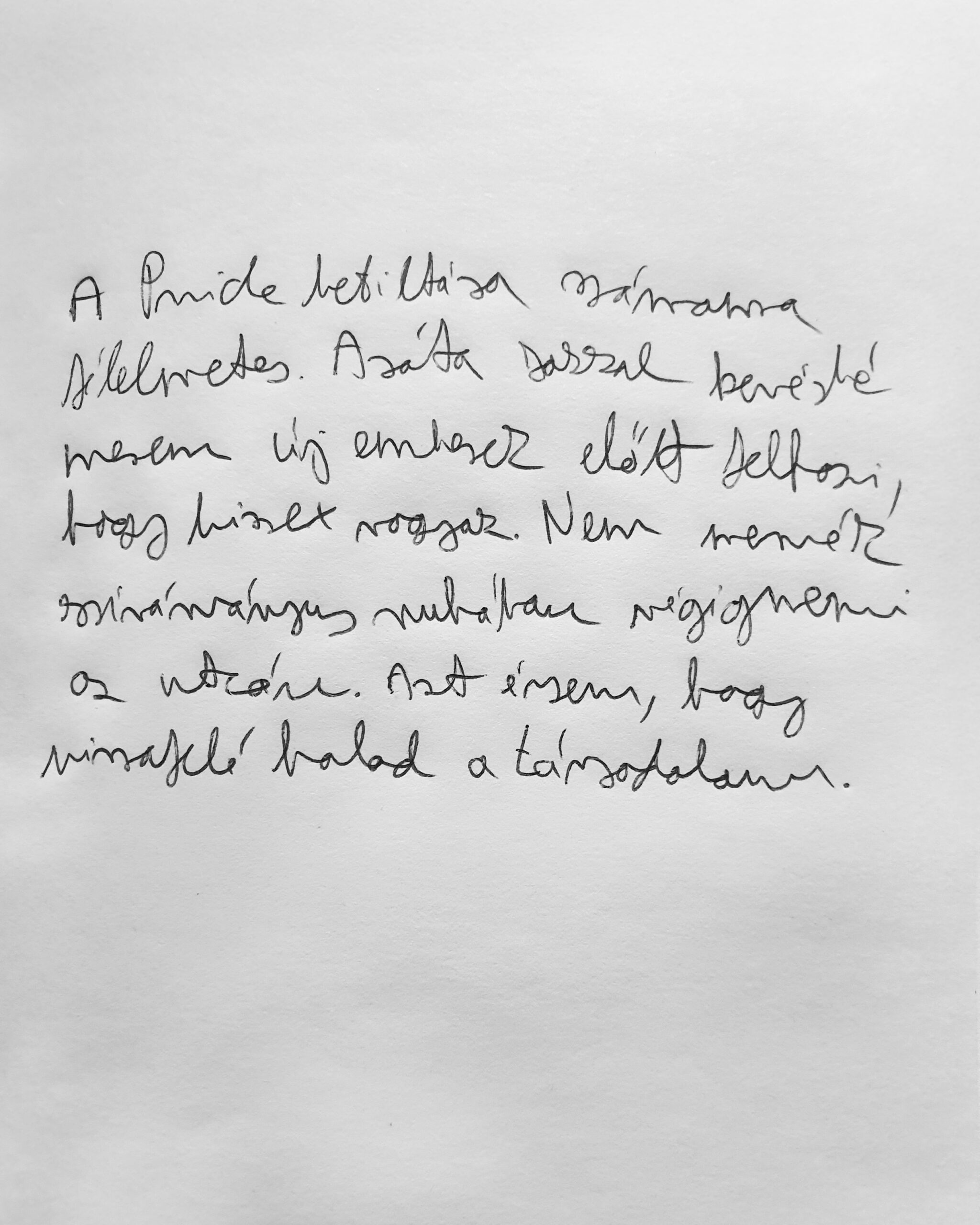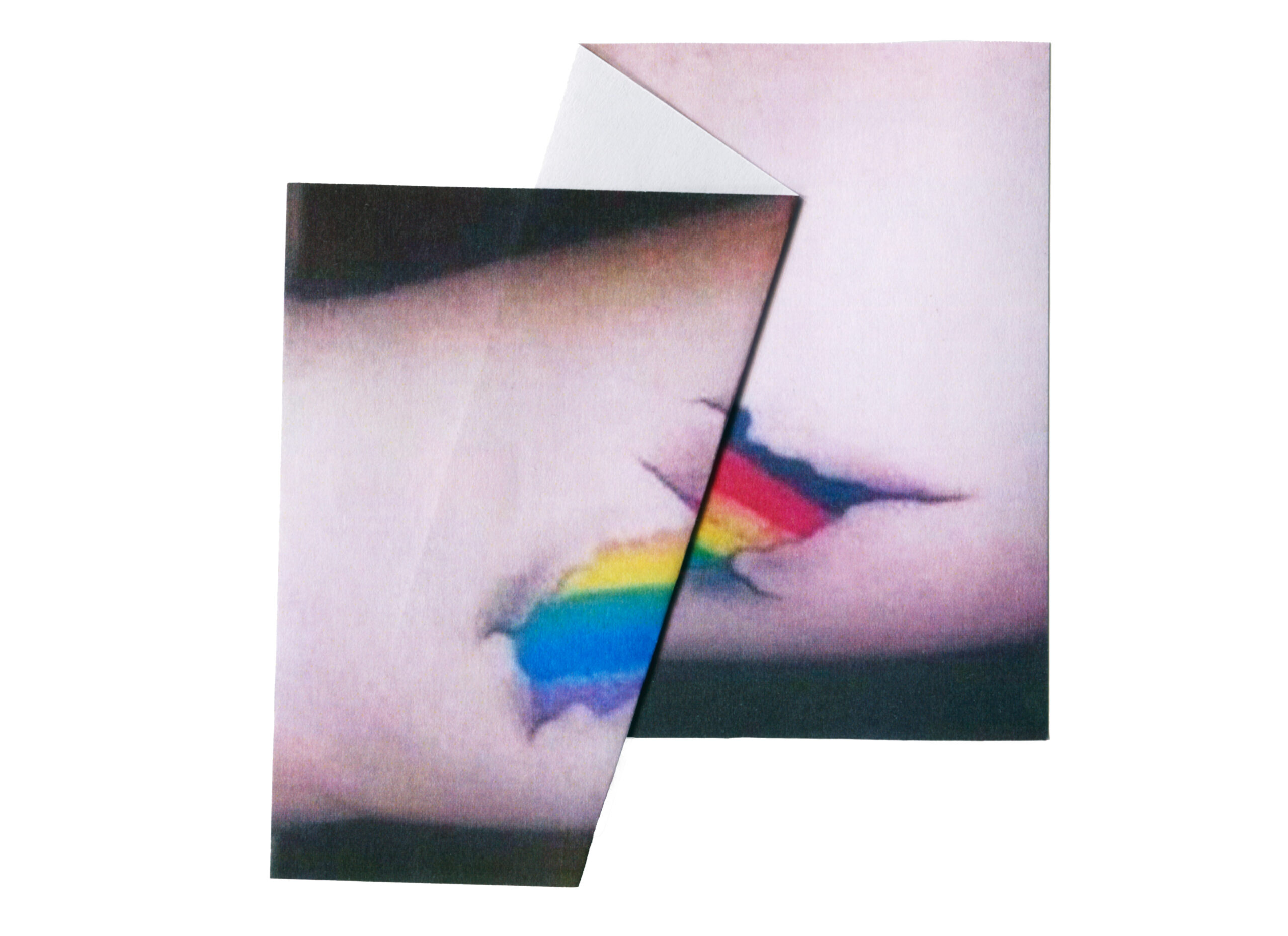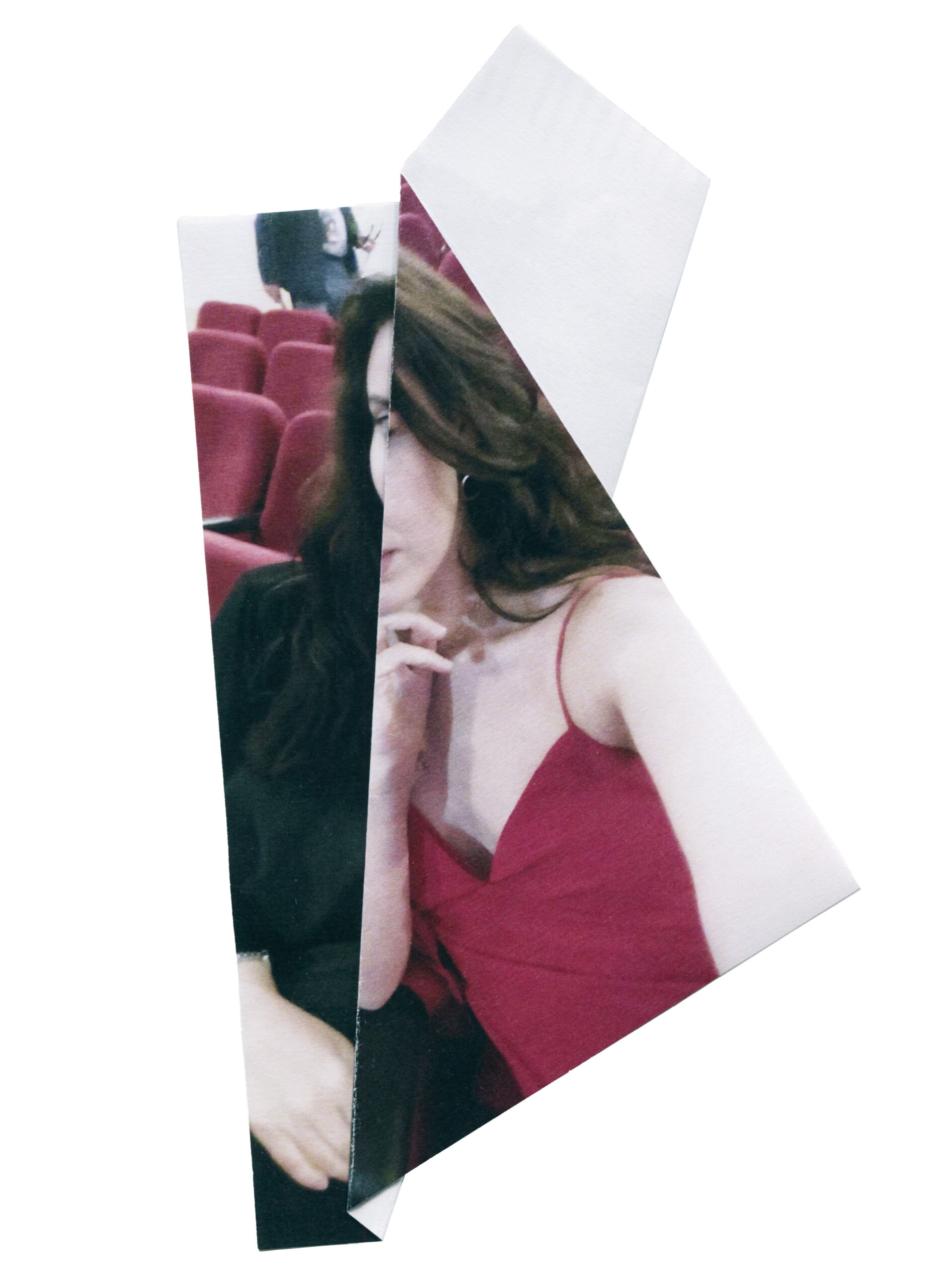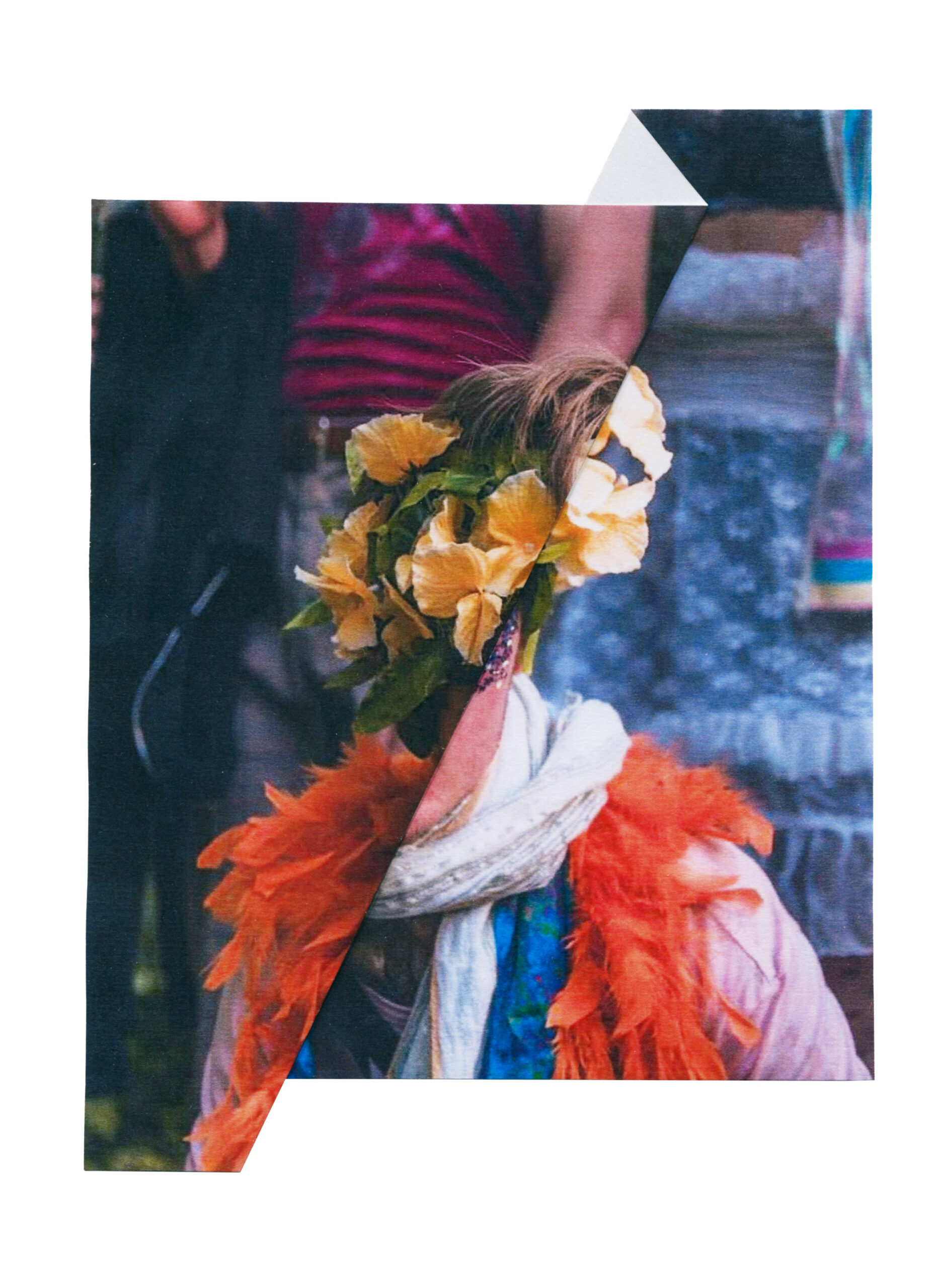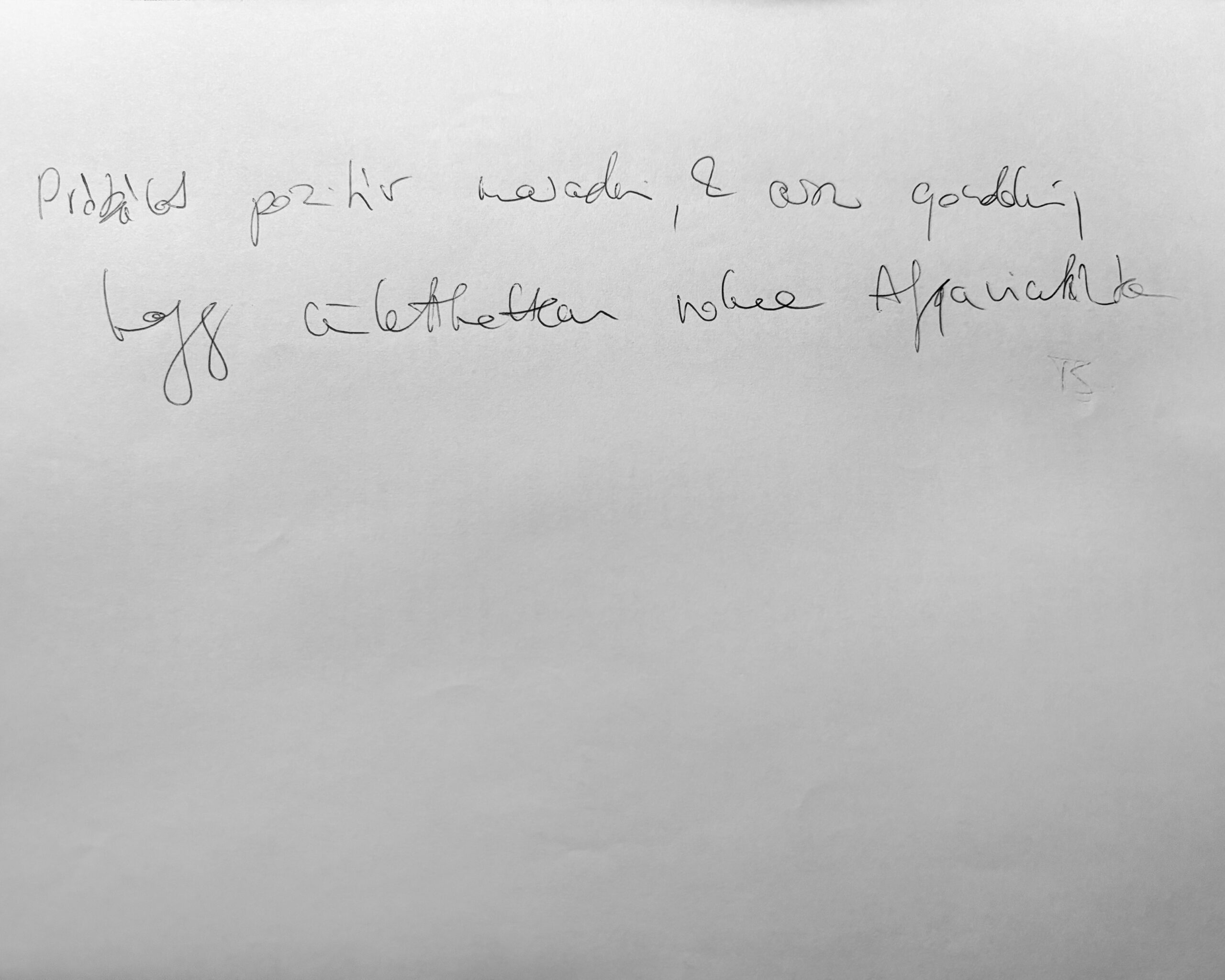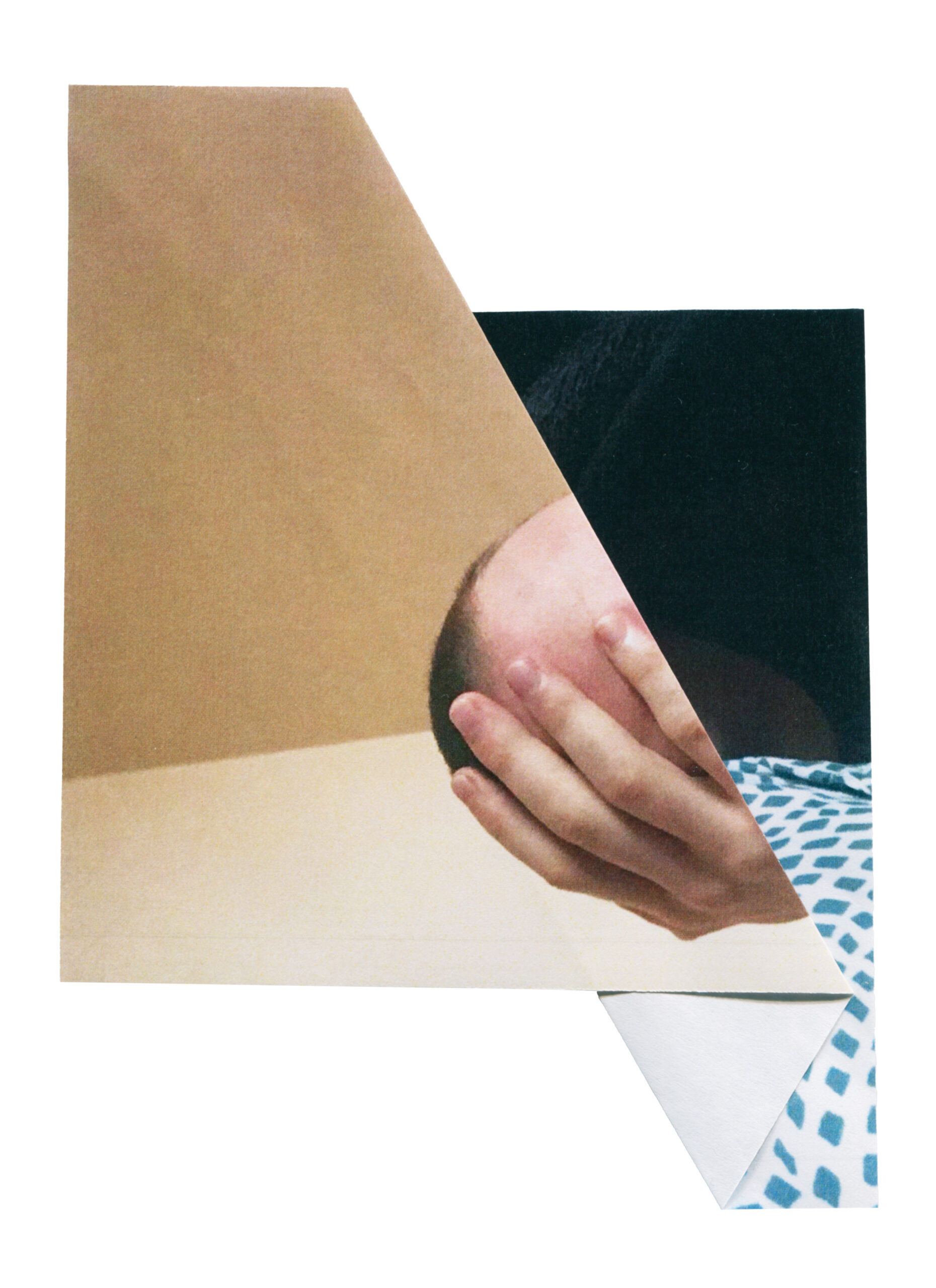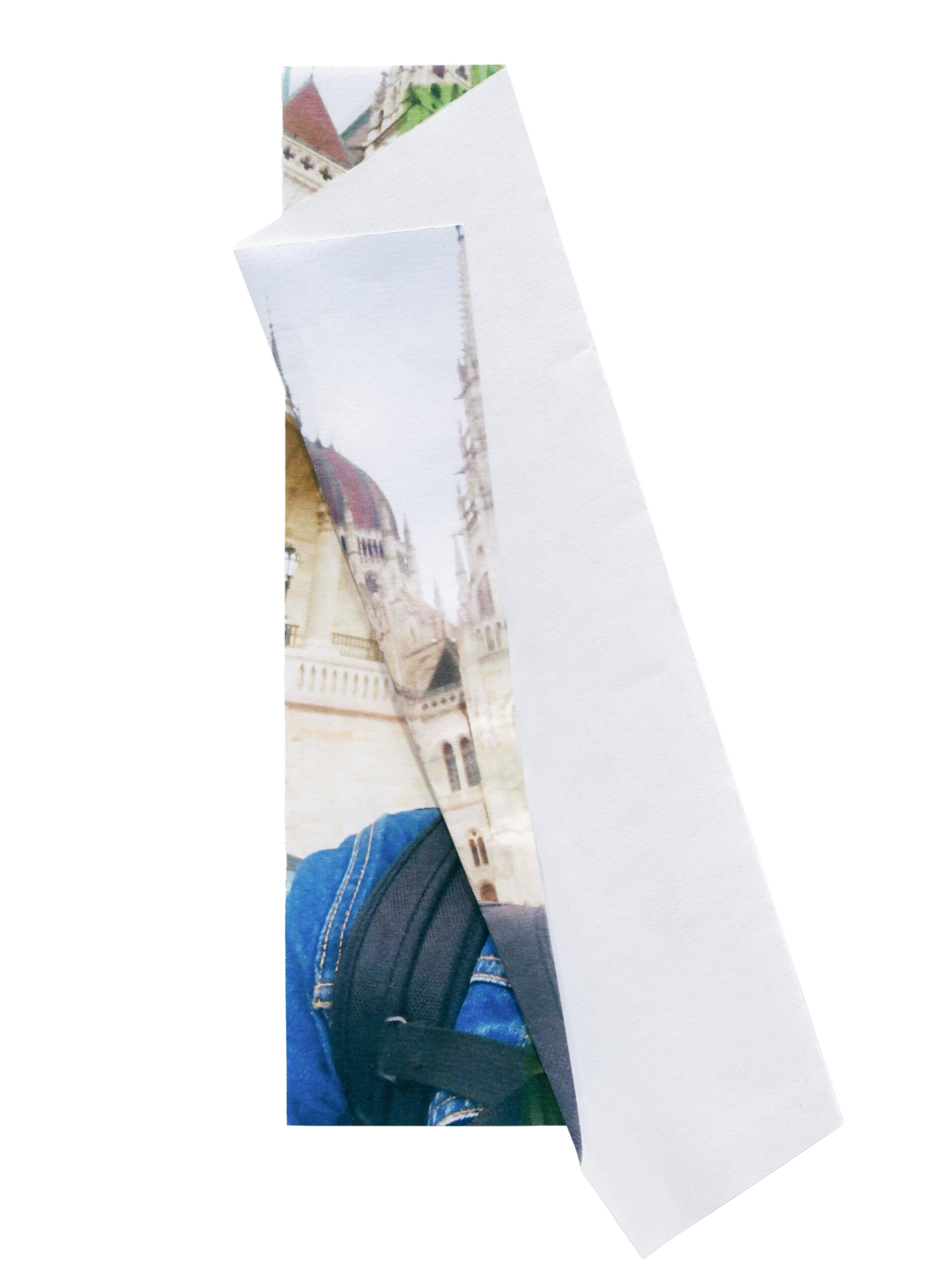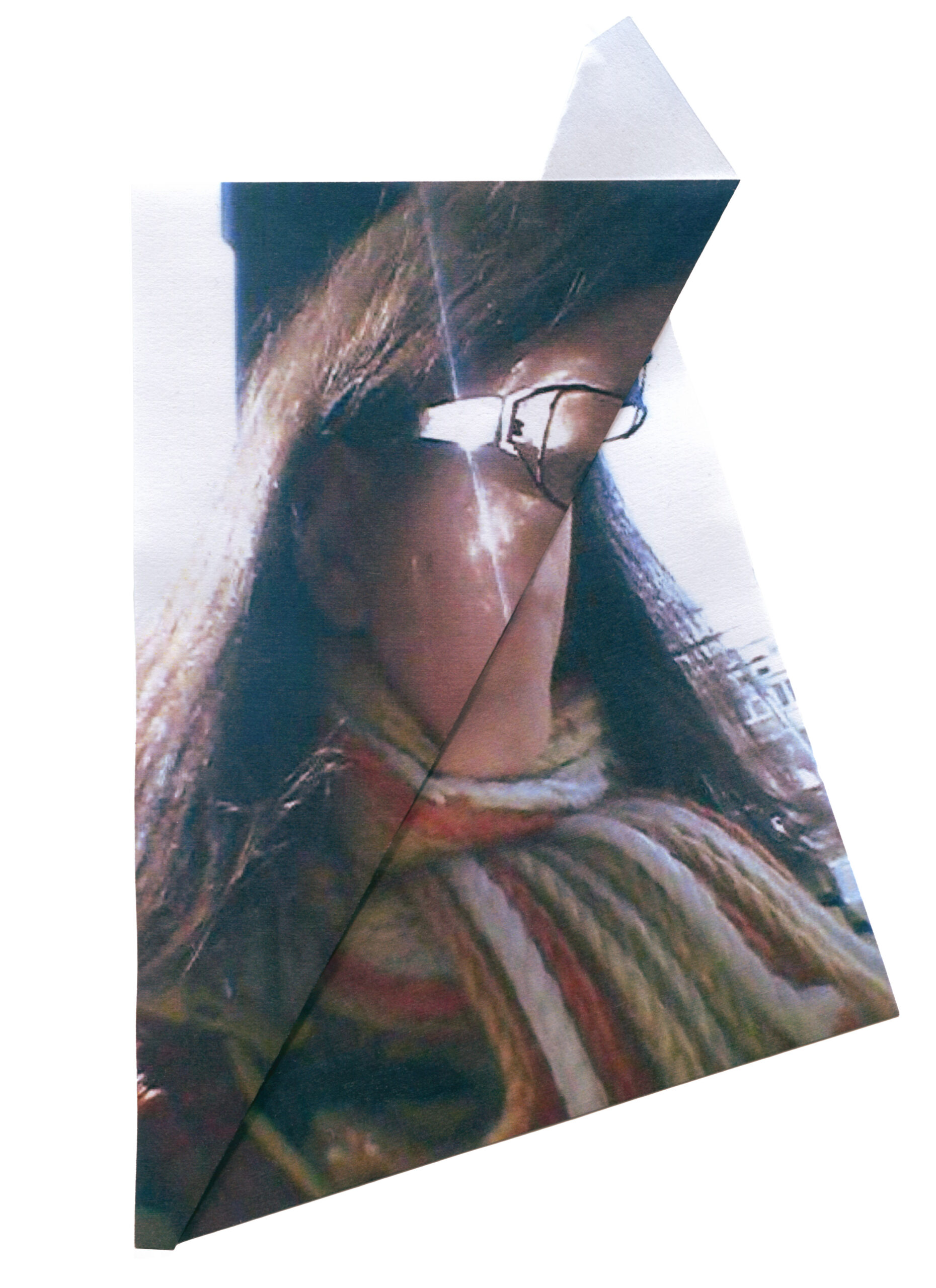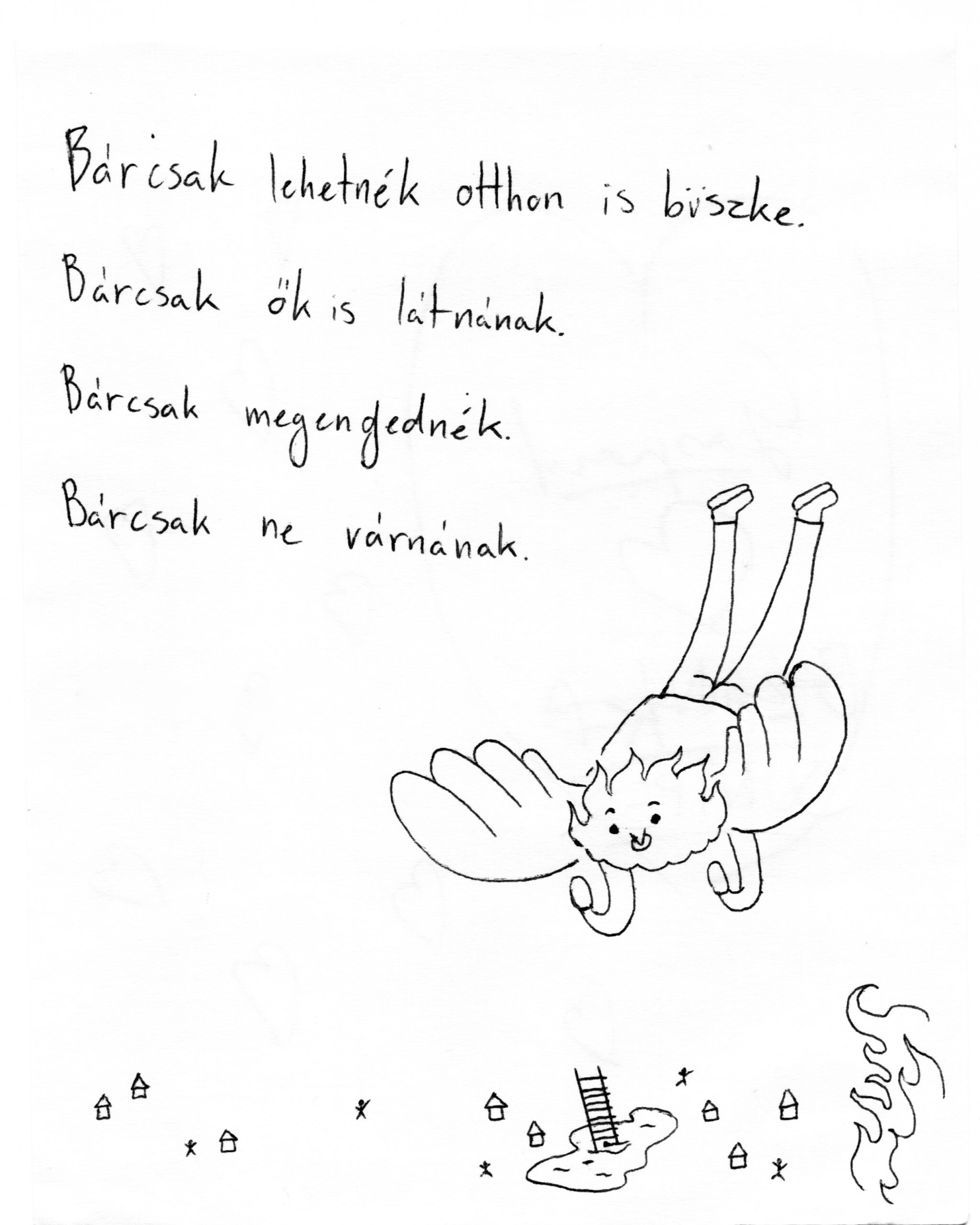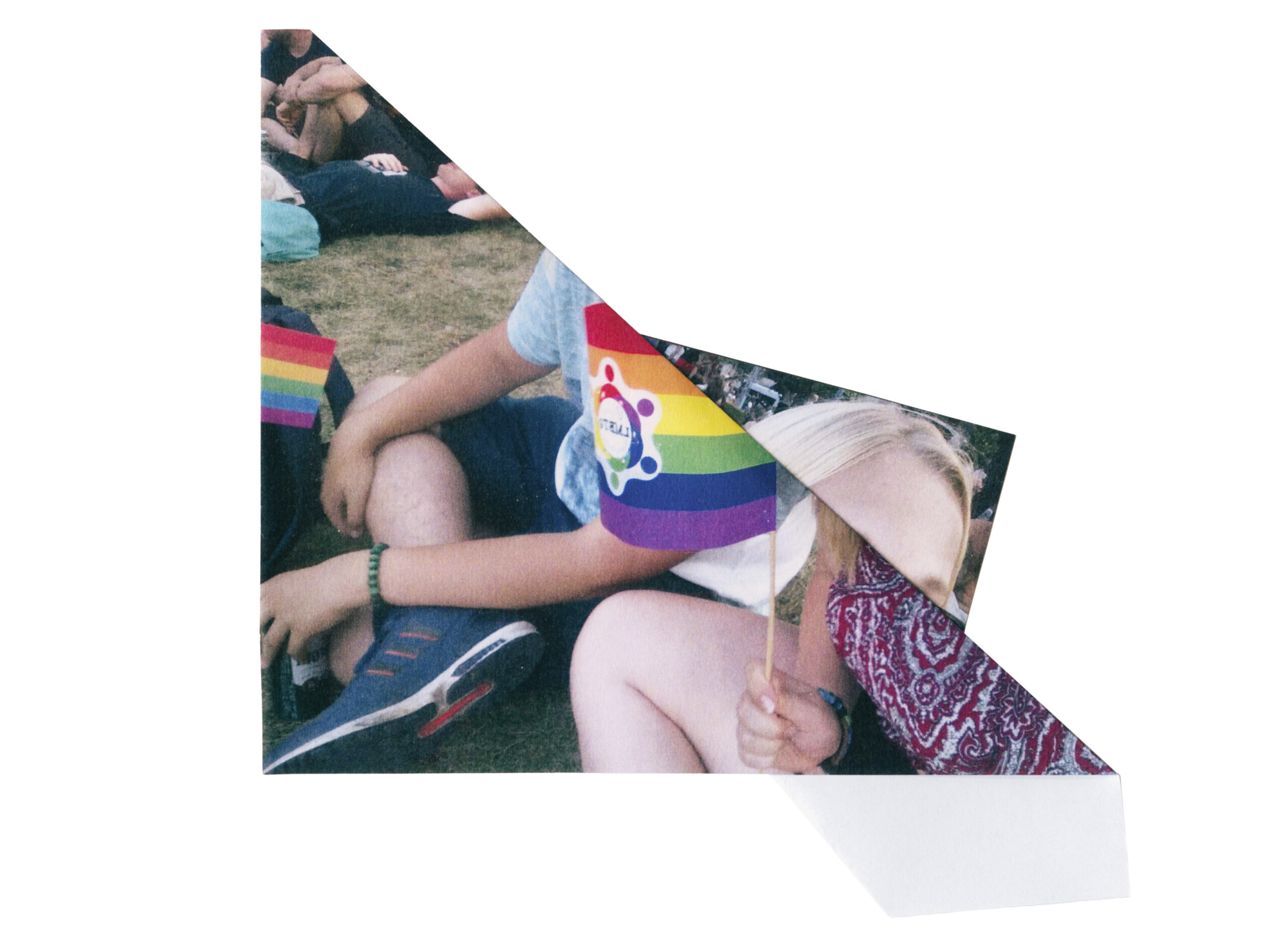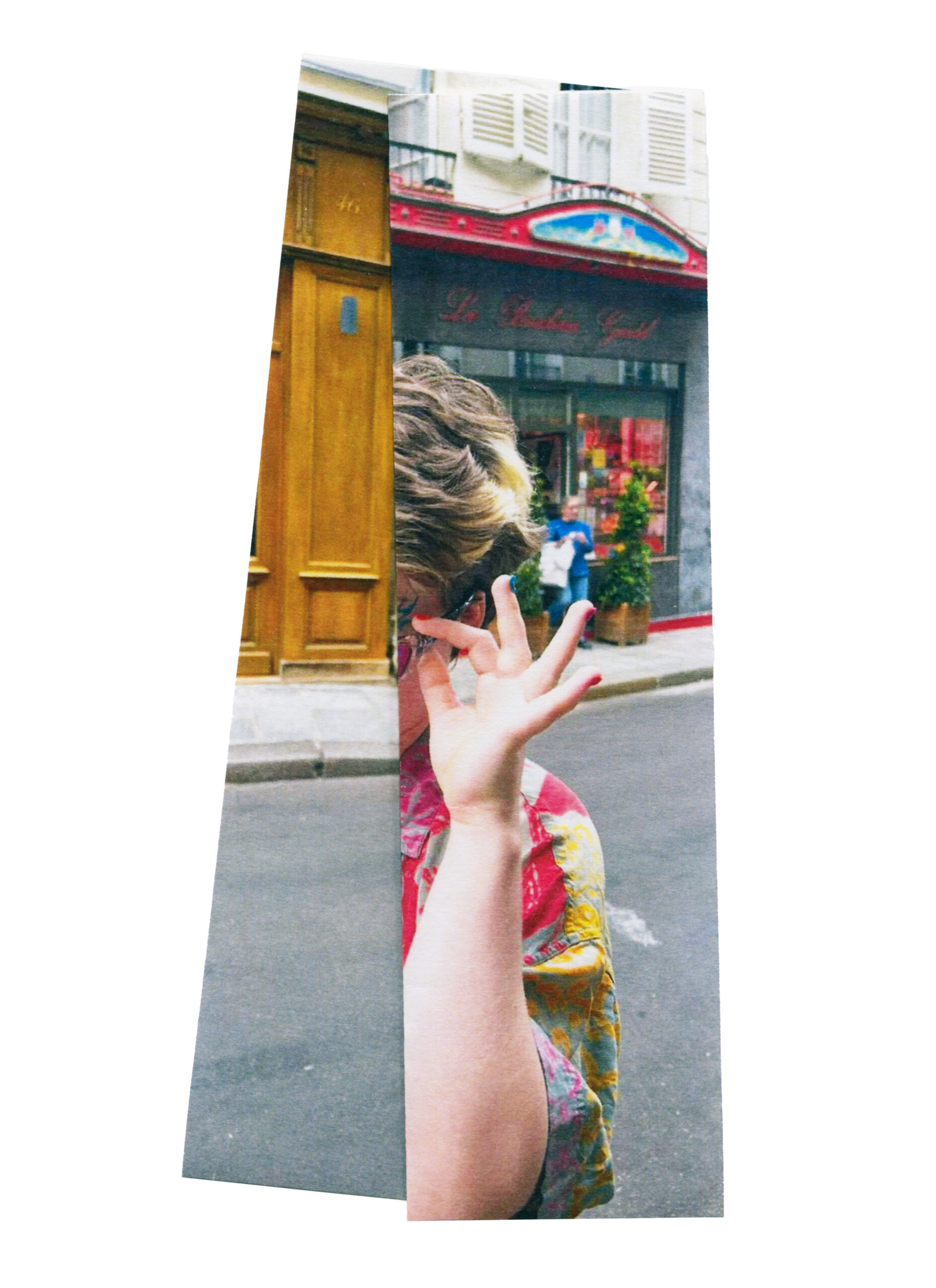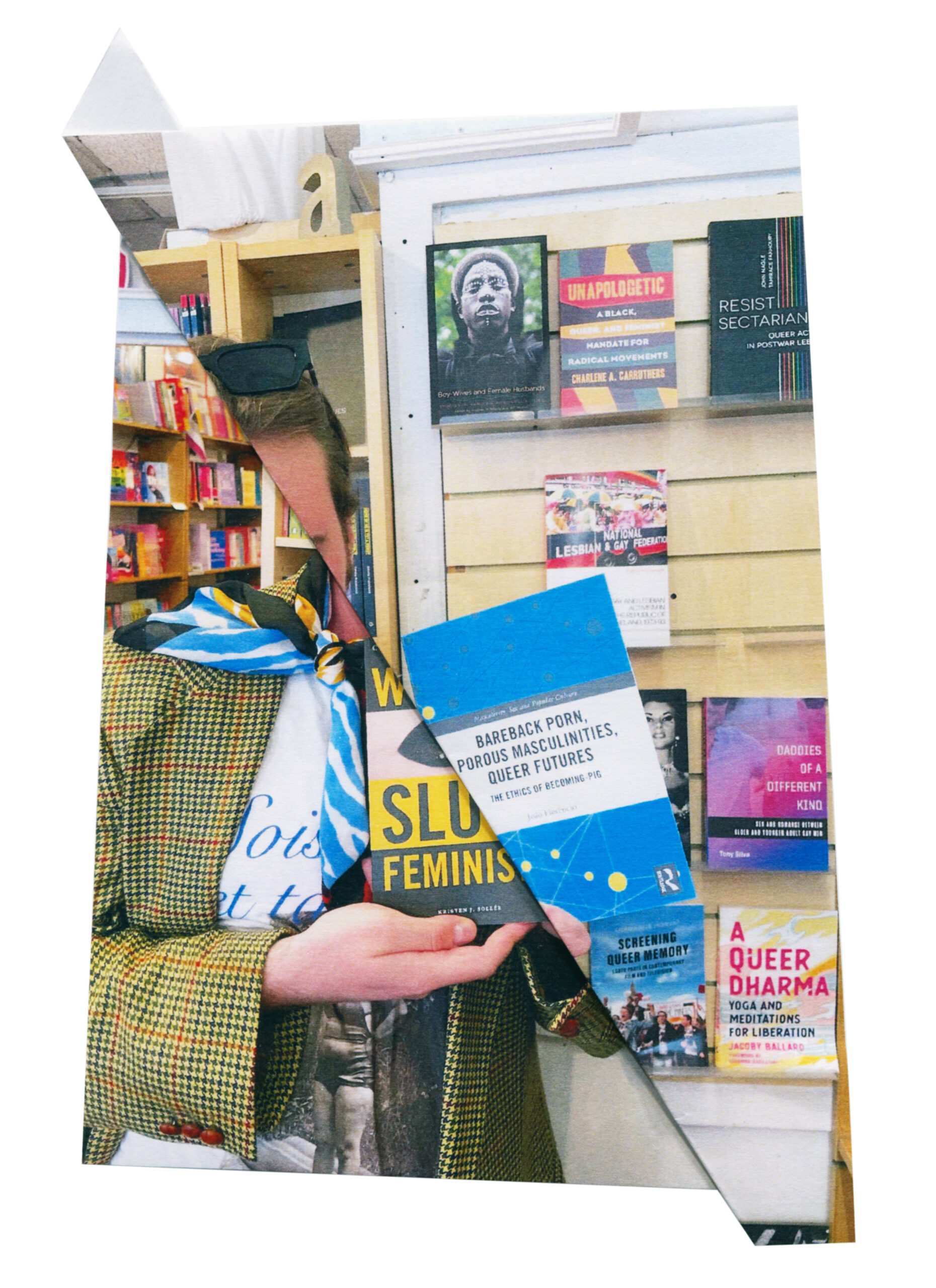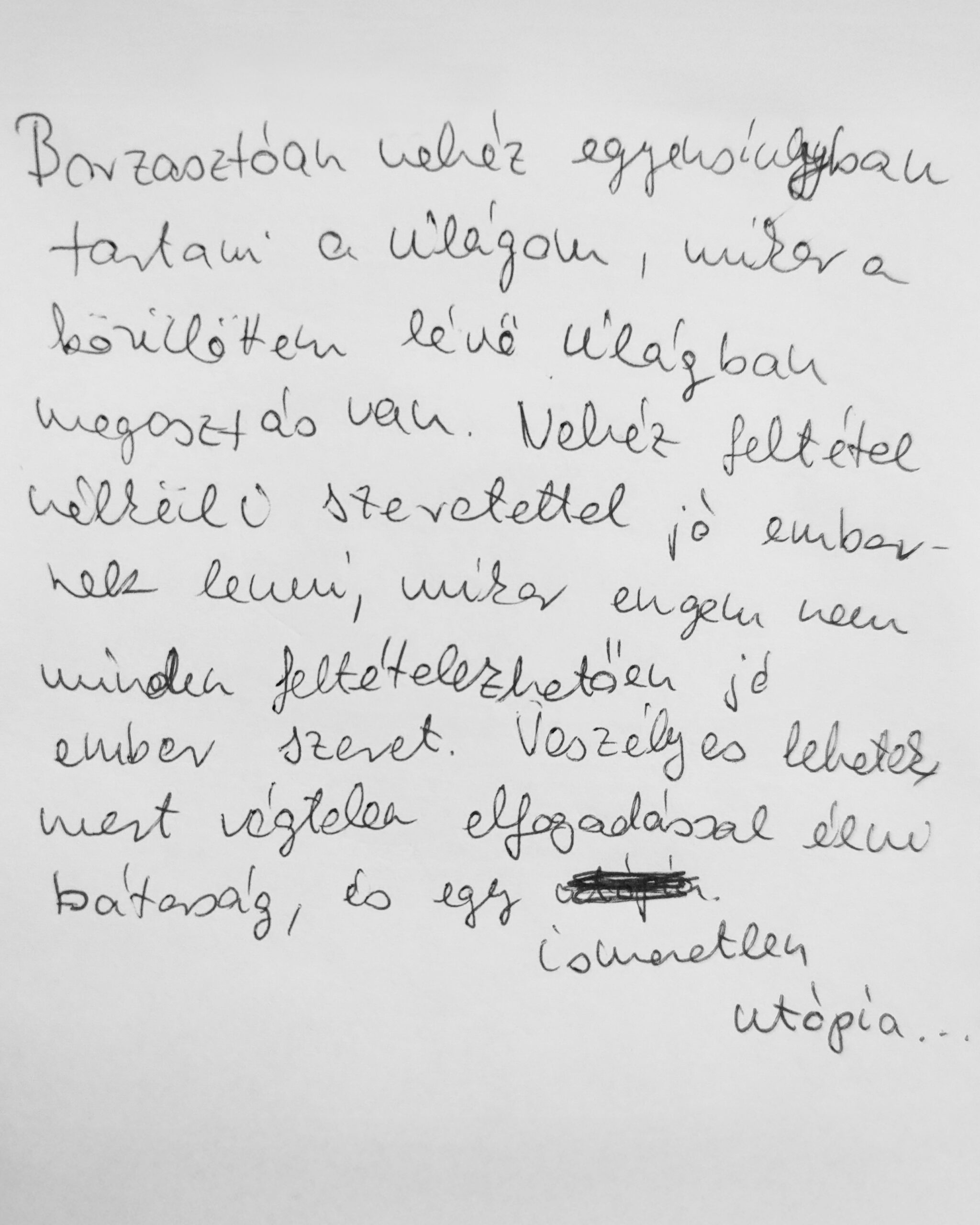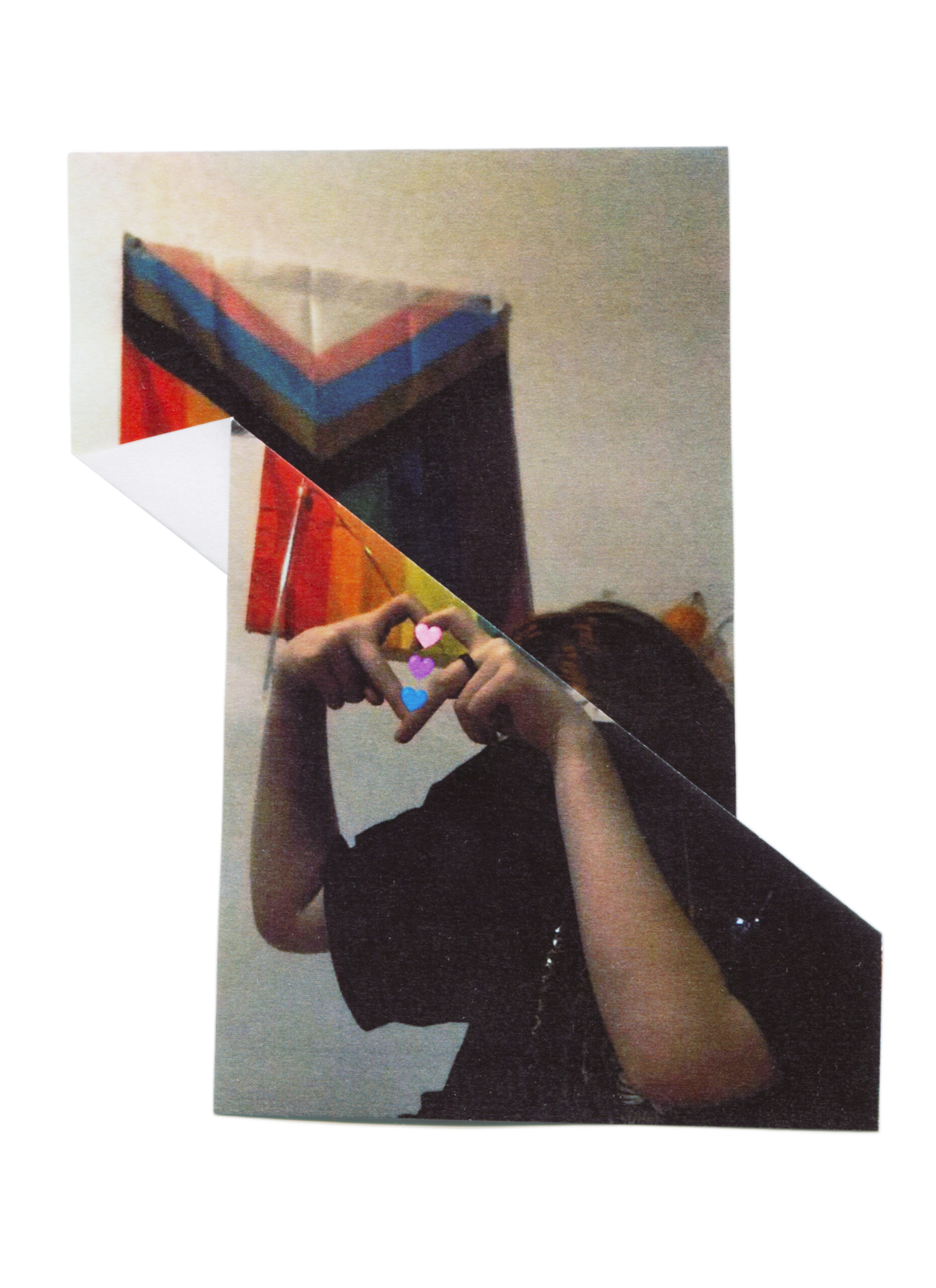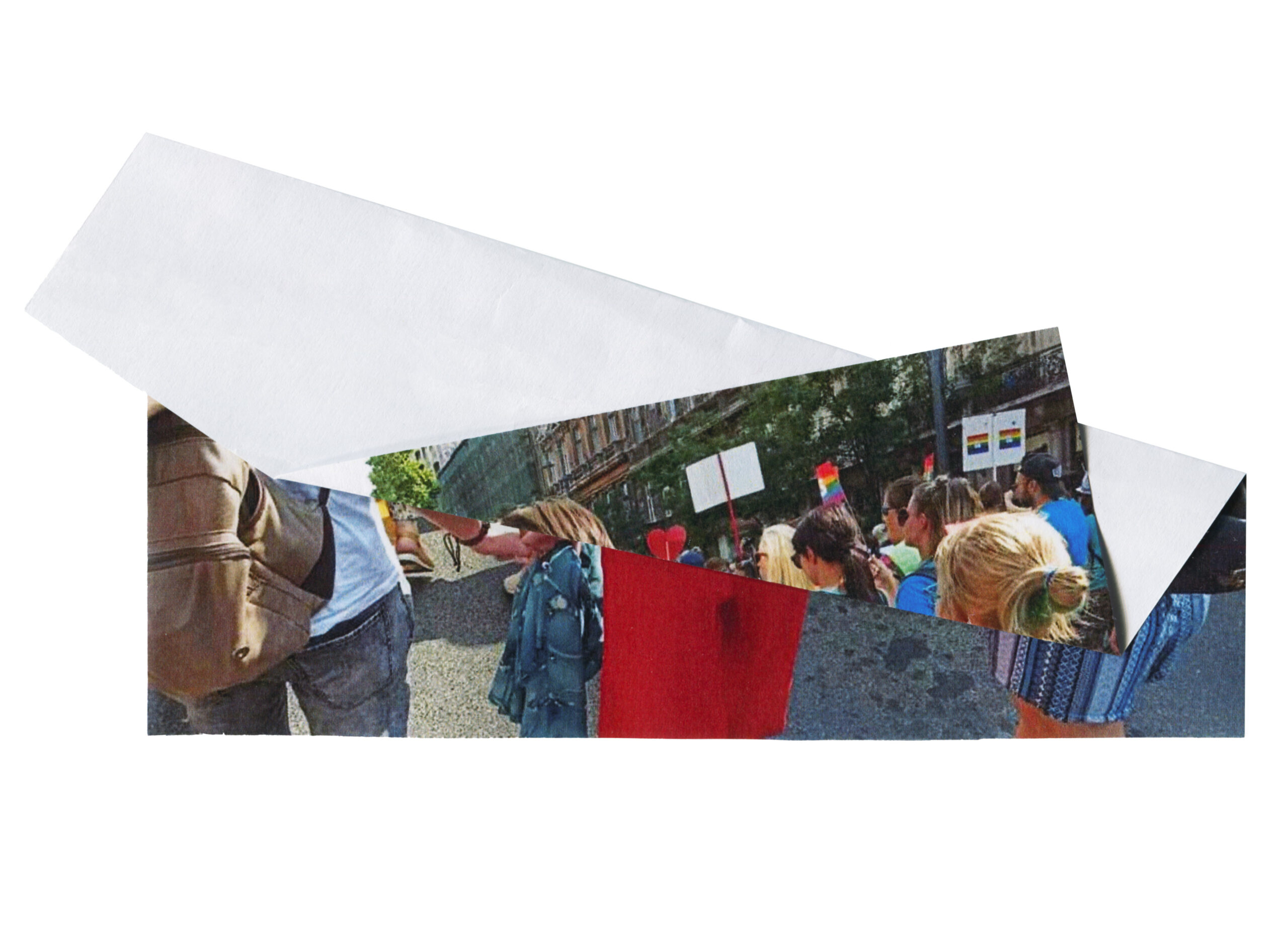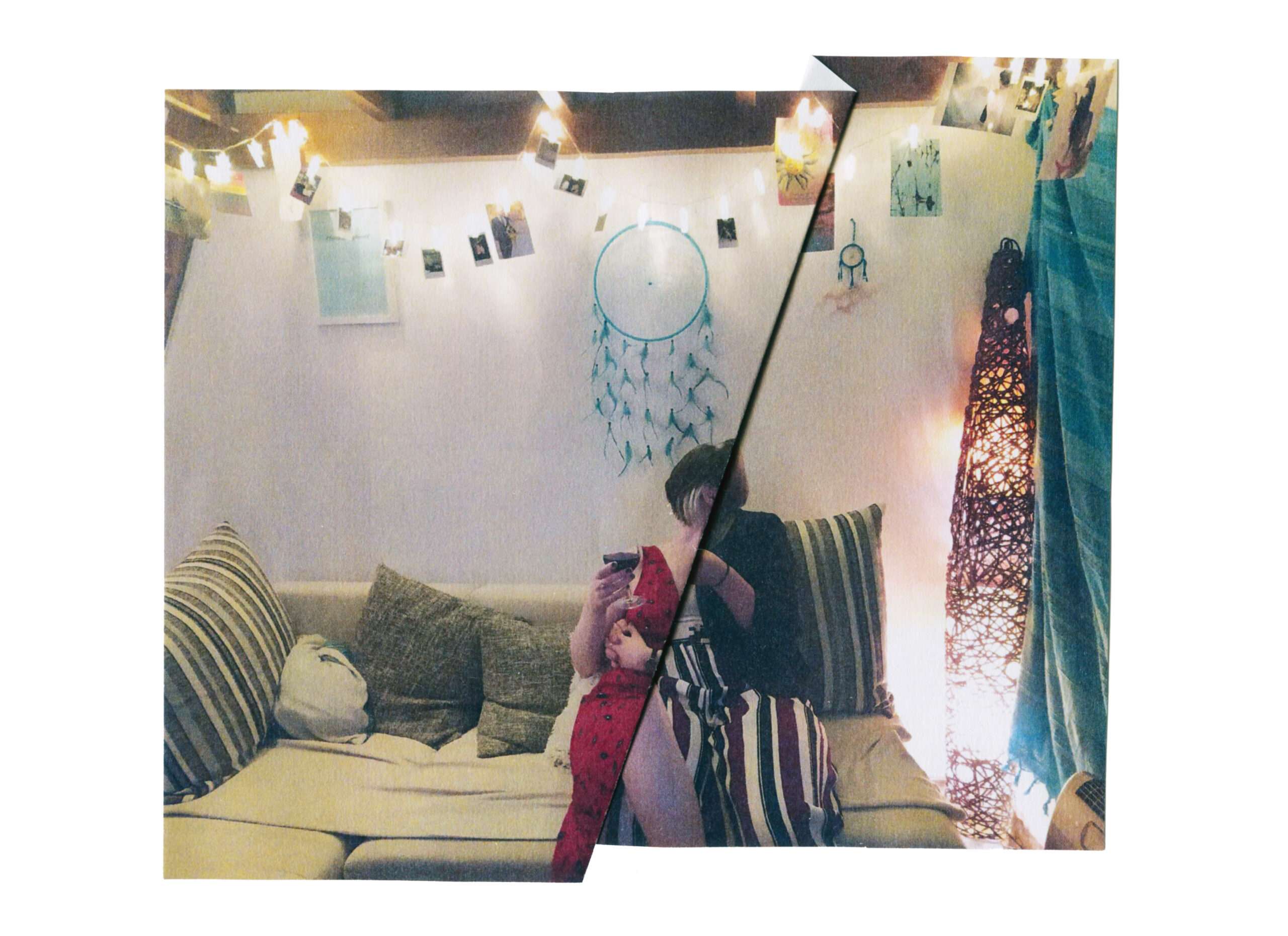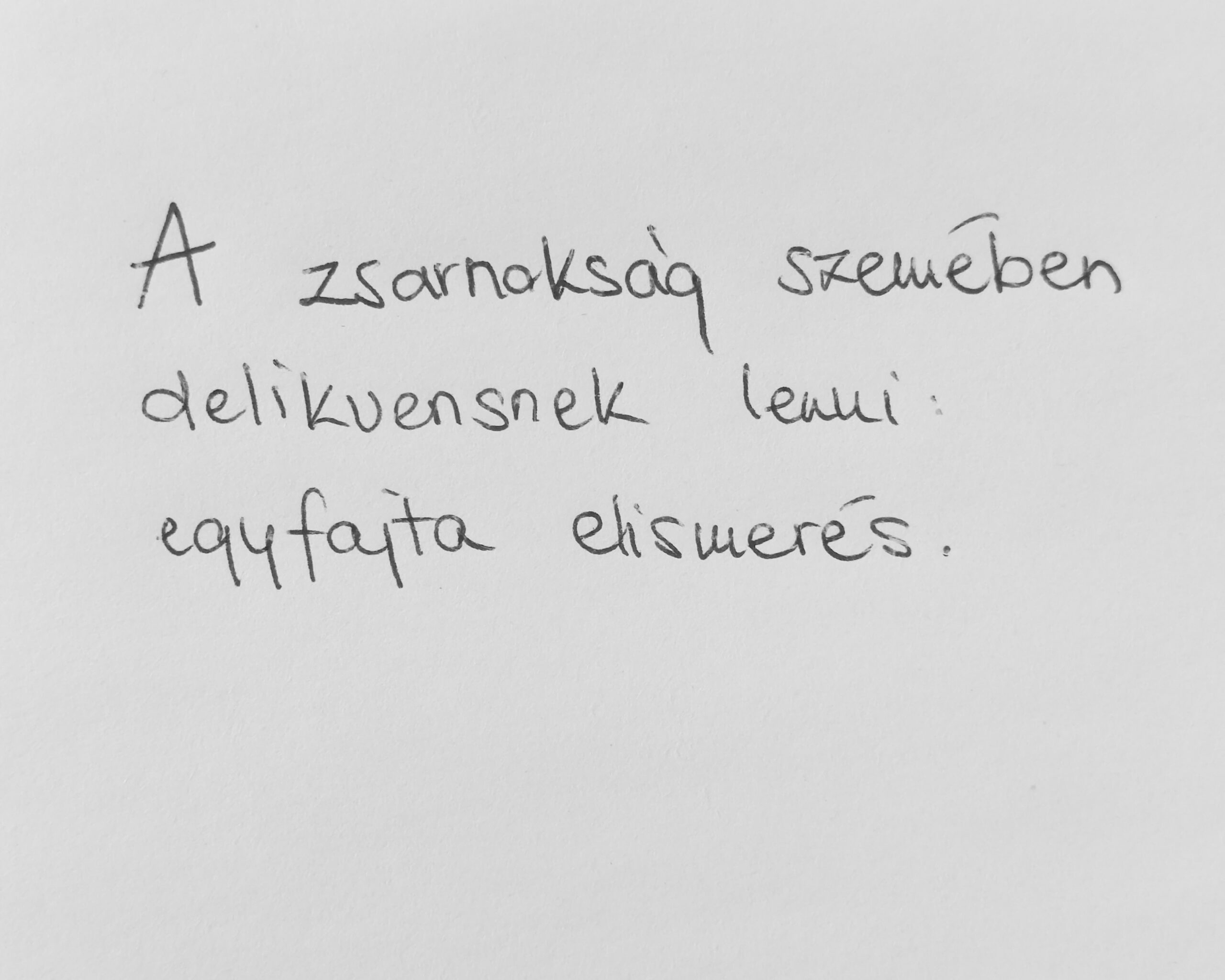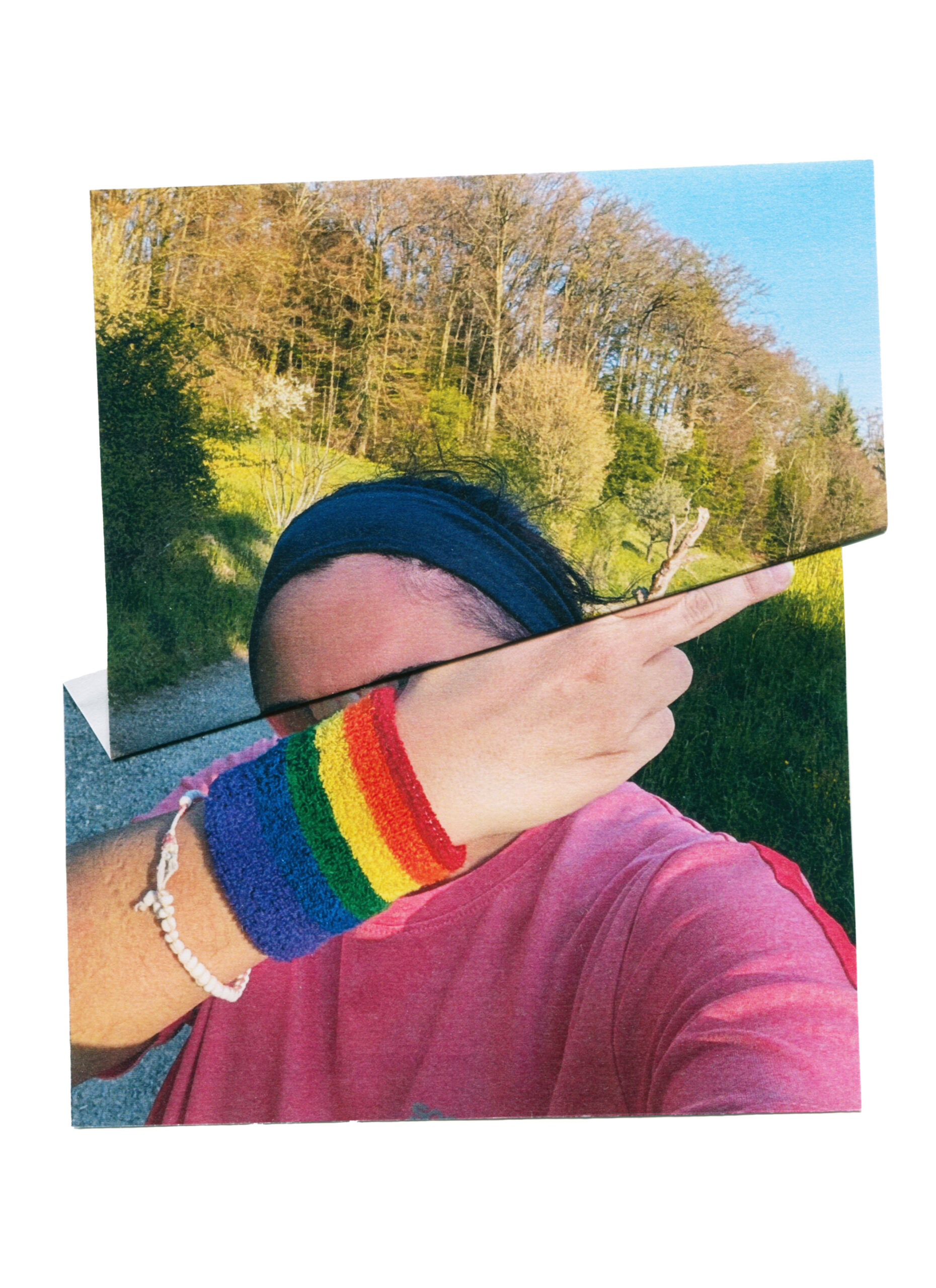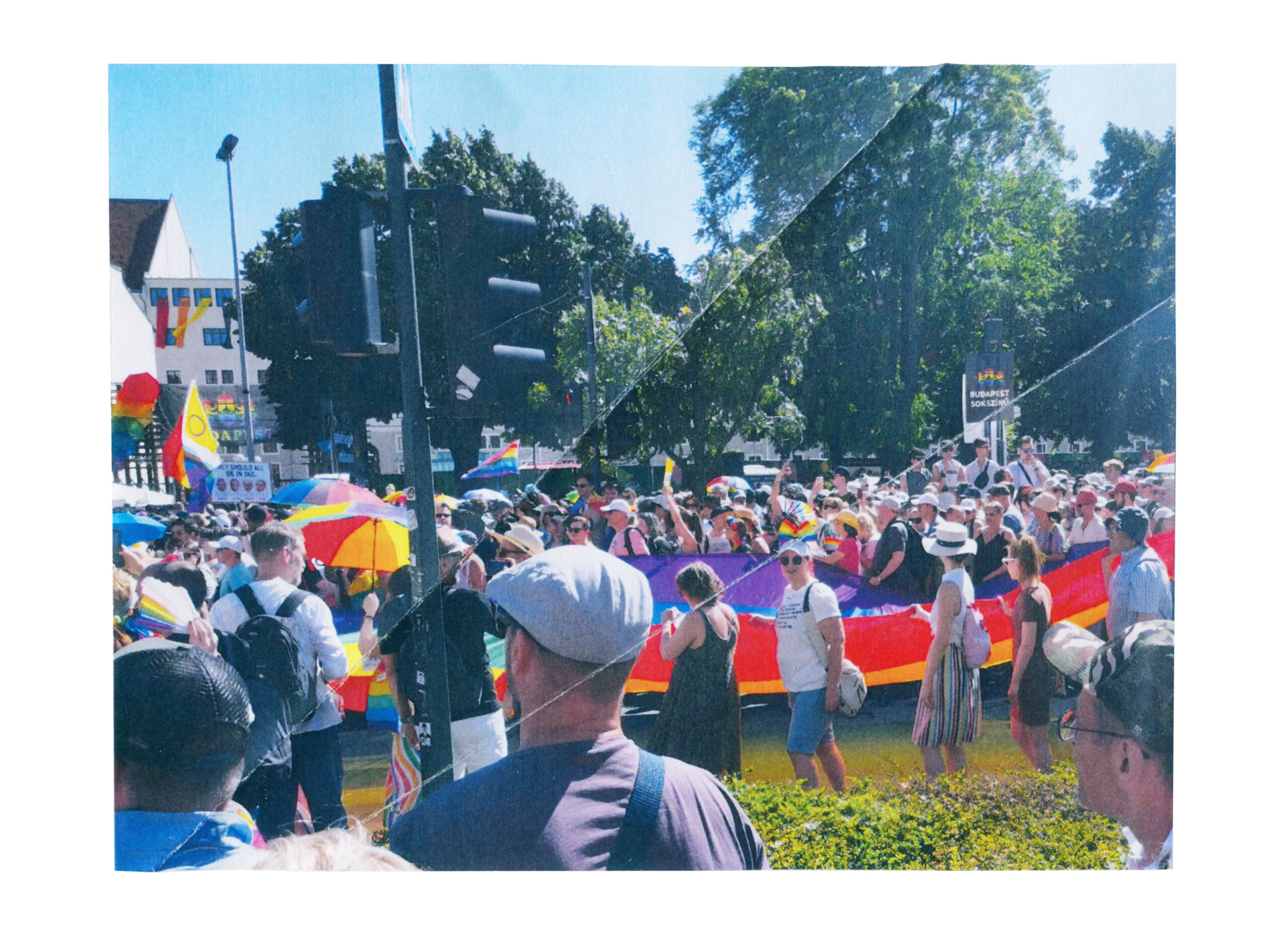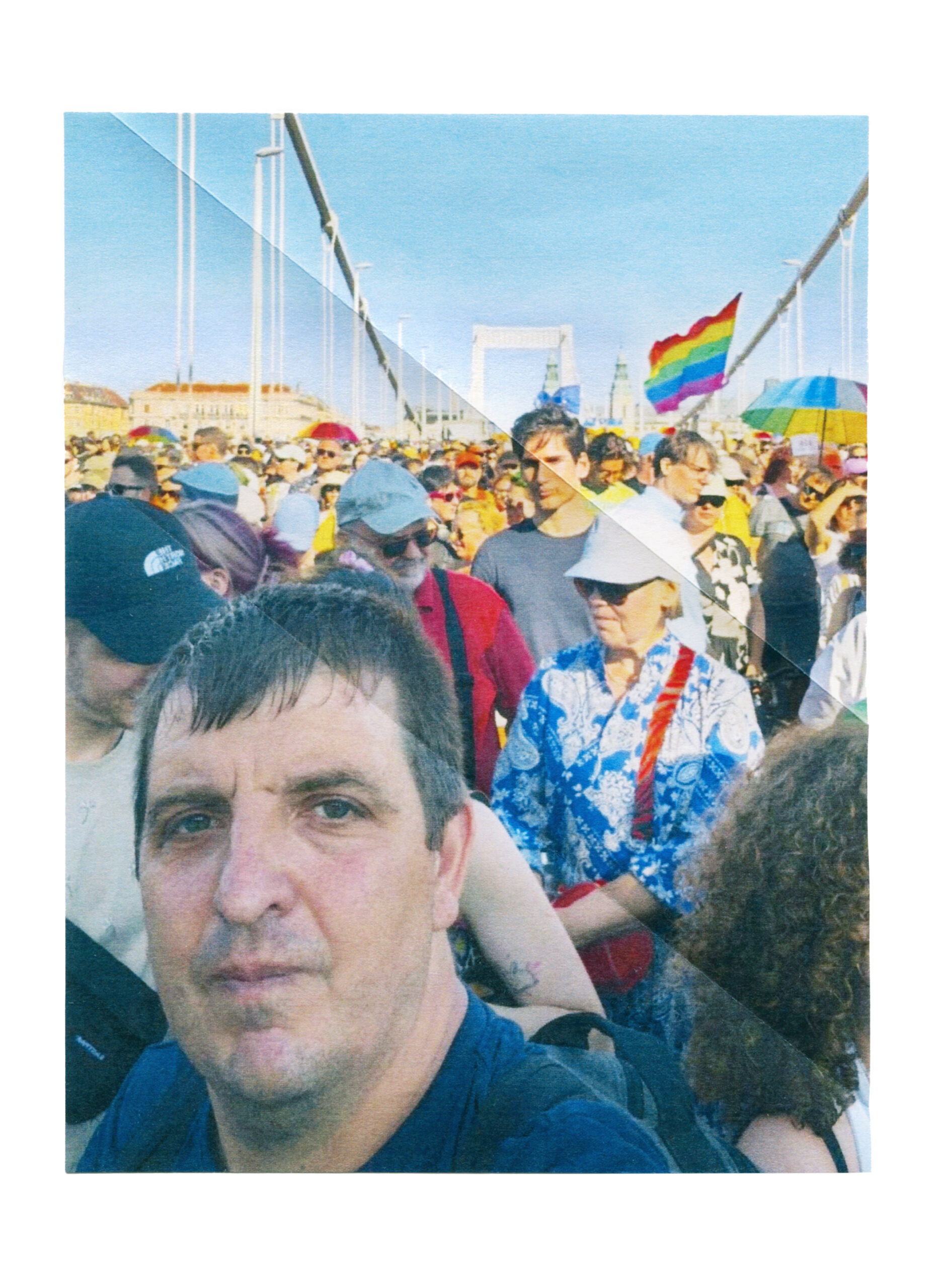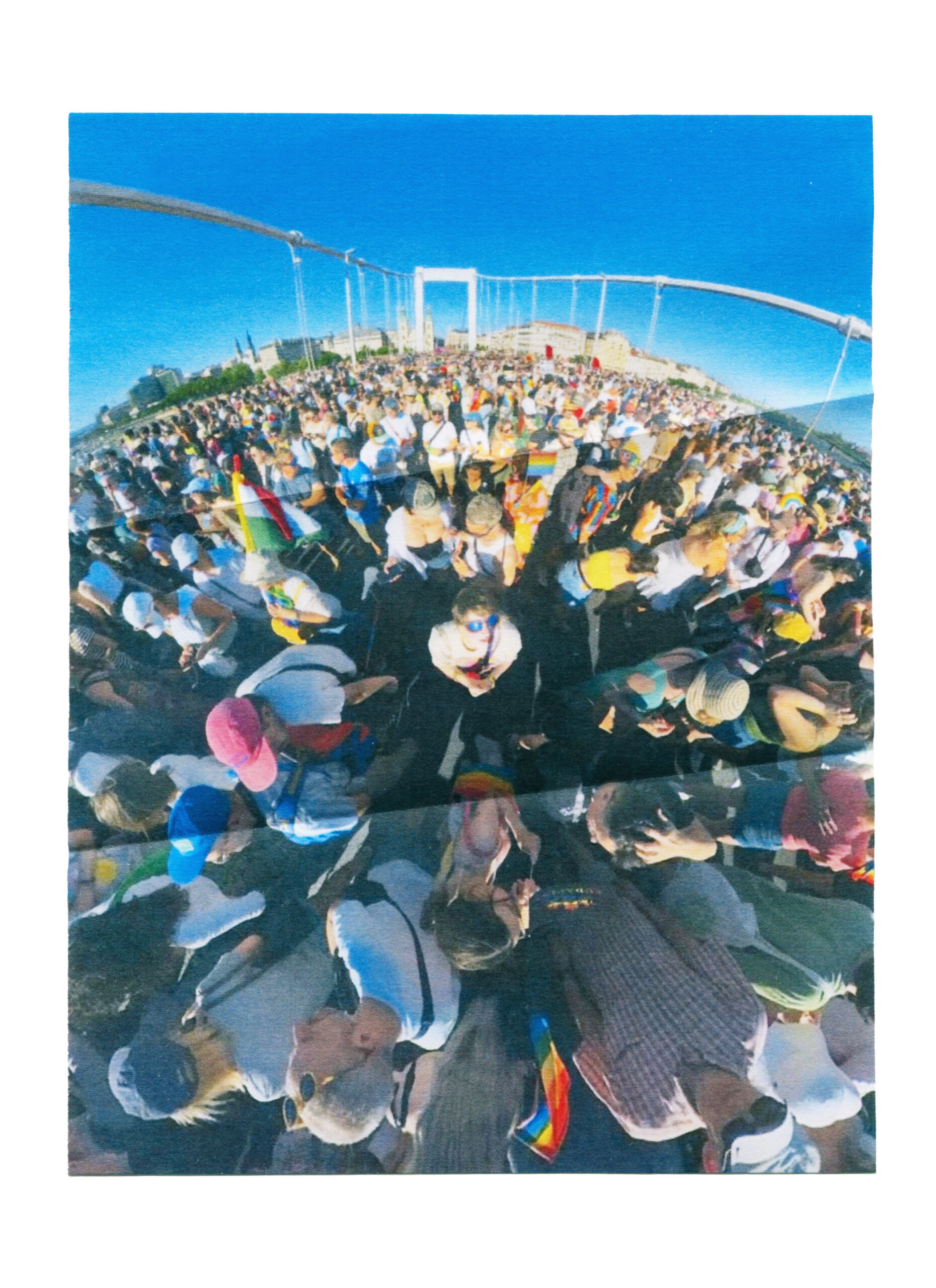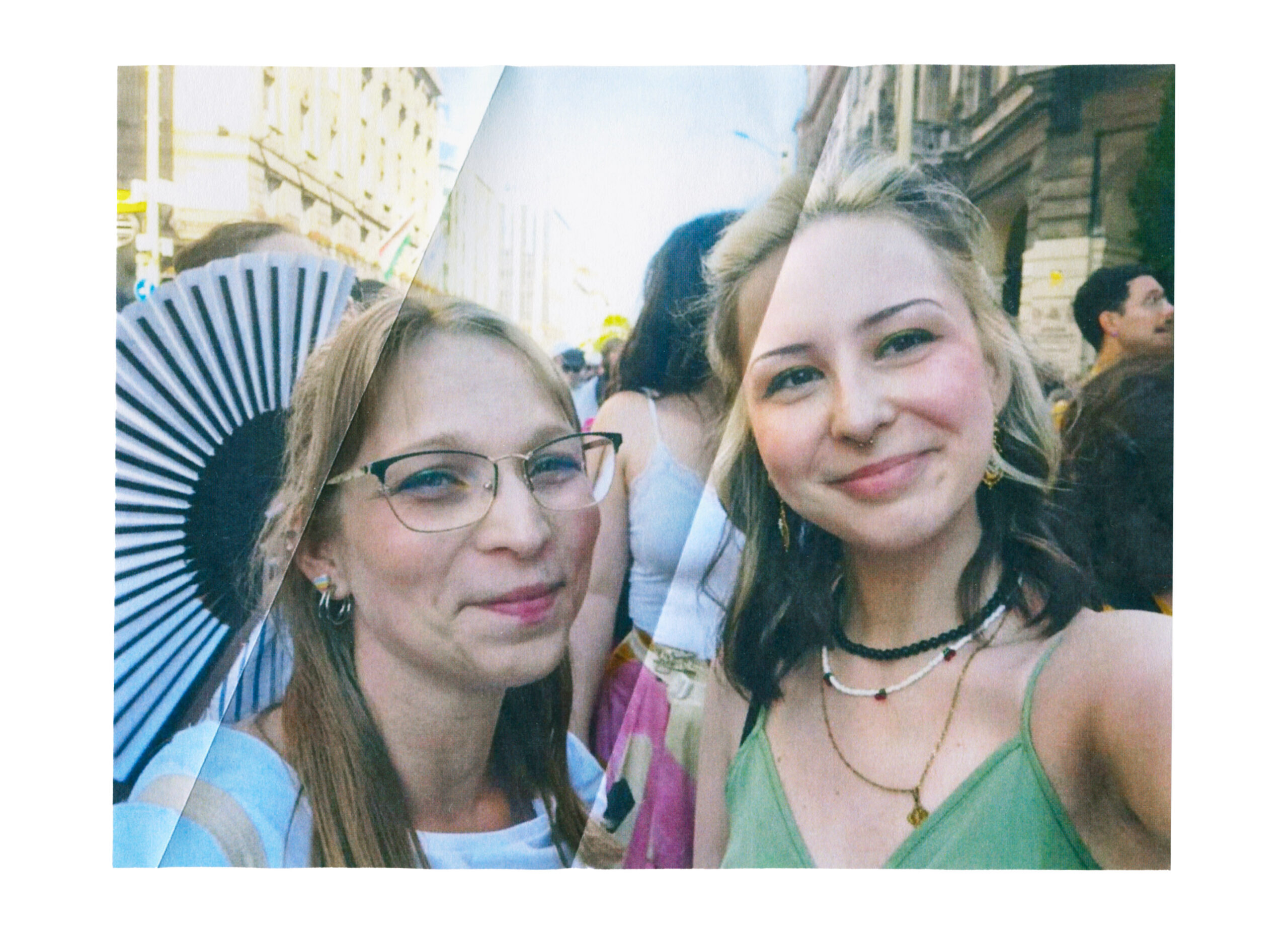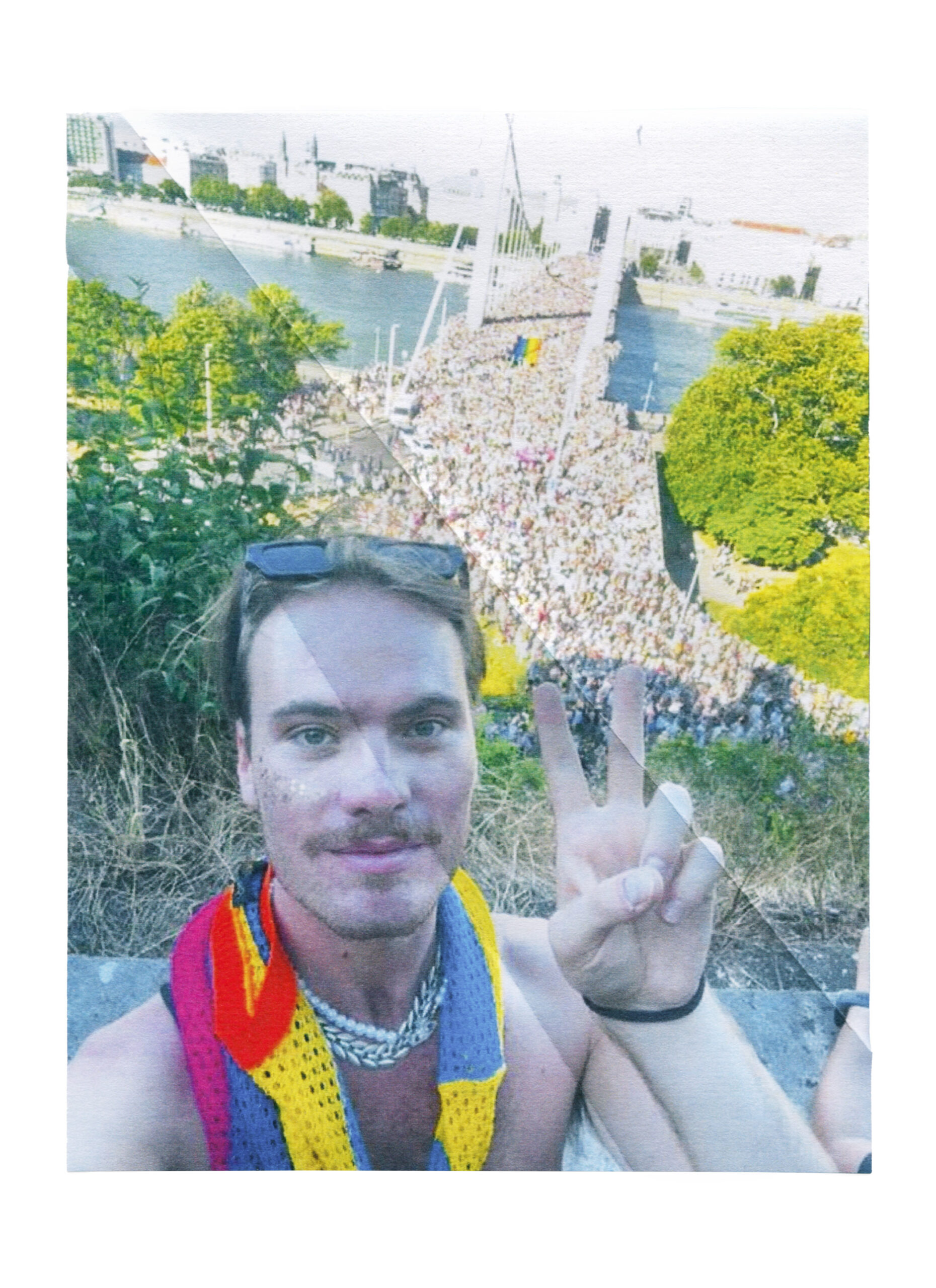On March 18 2025, as a queer French-Hungarian person living in Paris, I was shocked to learn that a law had been passed by the Hungarian Parliament, effectively making Pride marches illegal. This was an amendment to the law on public gatherings which, under the guise of « child protection, » prohibited the organization of or participation in any demonstration where minors could be exposed to homosexuality or trans identity. Its purpose was to ban any presence of LGBTQIA+ communities and movements in the public space and, of course, to prevent the Budapest Pride. The penalties were severe: up to 200,000 forints (about €500) for participants, and up to a year in prison for organizers. Under this new law, the police were authorized to use cameras and facial recognition software to identify those present. Despite the threats of sanctions, the Pride did take place that summer; it was the largest the country had ever known.
During the period of uncertainty leading up to the Pride, as a visual artist, I felt the need to express myself by creating something that would reflect what many of us were feeling: that the Hungarian government was attempting to instrumentalize, invisibilize, and censor us. I asked queer individuals on social media, friends, and acquaintances to send me self-portraits, along with texts or short phrases expressing their emotions about the situation.
I received numerous photos of people dressed in colorful outfits or everyday clothes, alone or with friends and lovers, at a Pride or on an ordinary day. The photos showed the diversity of ways people express their queer identity. I printed and folded the images to create collages; for me, this was a way to represent our collective feeling of displacement, our anxiety, the fear of being erased, and our will to exist as we are, despite everything. The unfolded images, created at that summer’s Pride, reflect the feeling of freedom and joy that we had experienced.
Published in Lazy Women, a feminist online media and community.
